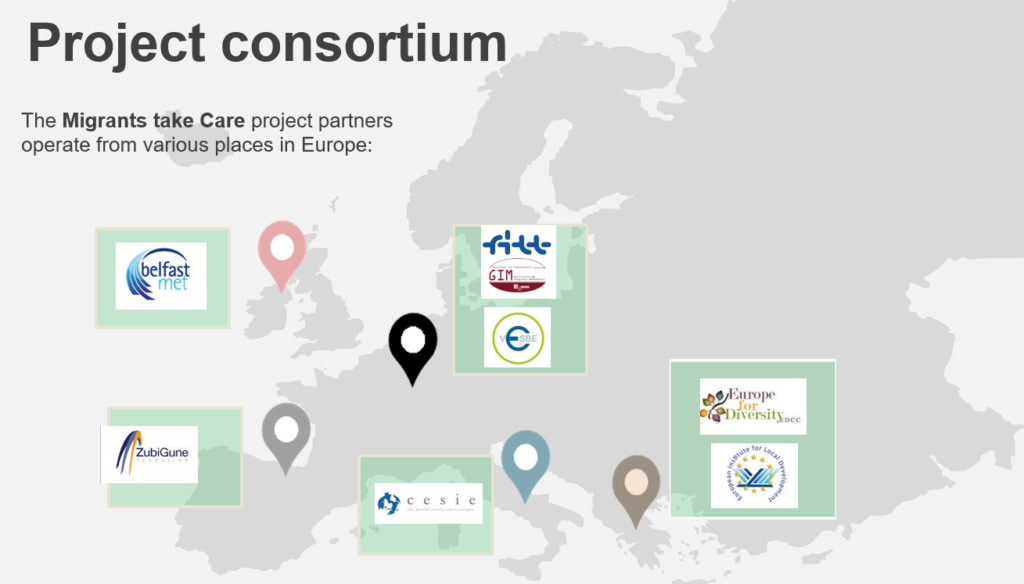Summary of this project’s mission: From 2018 – 2021 the project partners worked together in order to enhance the social inclusion of migrants from a particularly disadvantaged background with a low educational level in the Care Service sector. The project ended in March 2021.
Project summary
The objective of the project was to create education and training materials which are tailored to the needs of individual low skilled or low qualified migrants who wish to work in the Home/Residential Care Service sector. In the second place, the project partners cooperated with Care Service Providers, migrant organizations and Stakeholders in order to enhance the job integration of migrants. The project produced three main outputs: a training toolkit, a work-based language course and an employment guide for care service providers.
Context of the project
There is a growing shortage of employees in the Care Service sector, however a high proportion of migrants are employed under semi-legal conditions, very often without a training certificate or work license. The project therefore aimed to enhance the access, participation and learning performance of Migrant Care Workers and to improve their employment conditions in the Care Service sector. With the aim to raise awareness about the existing structural barriers and discriminatory praxis, this project cooperated with Care Service Providers and migrant organizations.
Project values
The design and implementation of Migrants take Care was based on principles of inclusiveness and non-discrimination. The project cooperated with the Migrant ogranizations and with Care Service Providers in order to address the current problematic of the social and labour situation for migrants (specifically in the care service sector). The aim was to point out the urgent need to improve the access to legal and decent employment of migrants in the Care Sector and to officially recognized trainings, which would support migrants to progress towards higher qualification.
Click below to download materials:

Materials in other languages
